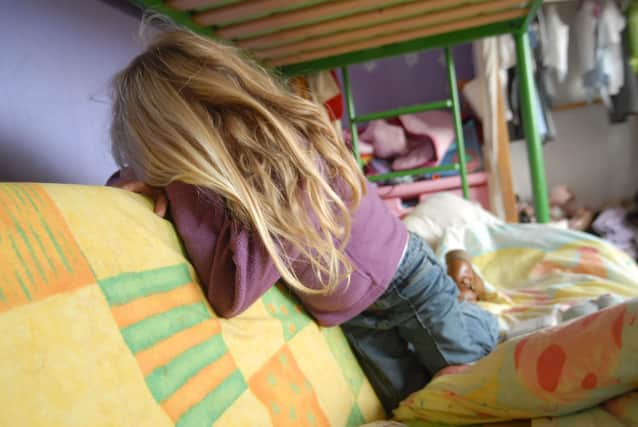Majority of adults now think it is wrong to punish a child physically


Nationally, a YouGov poll of almost 3,000 over-18s, of which 389 respondents were in the North West, commissioned by the charity, showed 68 per cnet of respondents think physically disciplining a child, for example by smacking, is not acceptable.
In the week (March 21 to 28) the “reasonable chastisement” defence was abolished in Wales, almost two thirds (61 per cent) of people in the North West who expressed an opinion said it is time to change the law in England to give children the same protection against assault as adults.
Advertisement
Hide AdAdvertisement
Hide AdThe survey showed 61 per cent in favour of a legal amendment to end the use physical punishment against a child, with 39 per cent against.
The poll also revealed a lack of clarity about what parents and carers currently can and cannot do when disciplining their children.
More than half (61 per cent) in the North West thought it was illegal to physically punish a child, 21 per cent did not know while only 18 per cent knew that it is still legal.
Last year there were more than 500 counselling sessions delivered by Childline to young people about physical punishment.
Advertisement
Hide AdAdvertisement
Hide AdSome young people said they had been physically punished for a while, but it had become more severe as they had got older. This left them feeling afraid of their parents or carers, and worried for their own safety:
A girl aged 16 told Childline: “When I was younger and I misbehaved, my mum gave me a warning and put me on the naughty step. Then when I got to around five to 12 years old, it was a tap or a little smack.
"But now it can be a proper smack or there was one occasion where she pulled my hair and I fell to the floor and she continuously hit me. I don’t want to get mum in trouble, but I can’t carry on being afraid of her.”
The University College of London and an international team of experts recently analysed 20 years of research on the topic. Their conclusion was that physical punishment is ineffective and harmful and has no benefits for children and their families.
Advertisement
Hide AdAdvertisement
Hide AdThey showed it does not improve children's behaviour and instead increases behavioural difficulties, such as aggression and anti-social behaviour.
The research also revealed that children who are the recipients of physical punishment are at increased risk of being subjected to more severe levels of violence.
The Welsh Parliament passed the Children (Abolition of Defence of Reasonable Punishment) Wales Act, in 2020.
It means Wales has now joined Scotland and more than 60 other countries around the world in no longer tolerating any physical violence against children, in the same way they don’t for adults.
Advertisement
Hide AdAdvertisement
Hide AdThe NSPCC is now calling on the Government to follow suit in England and end the legal anomaly which currently allows parents and carers to use a defence of “reasonable punishment” after striking a child.
Sir Peter Wanless, CEO of the NSPCC, said: “Public attitudes to physical punishment are changing and the law needs to follow suit. Westminster now needs to follow its neighbours and tackle this legal anomaly.”
